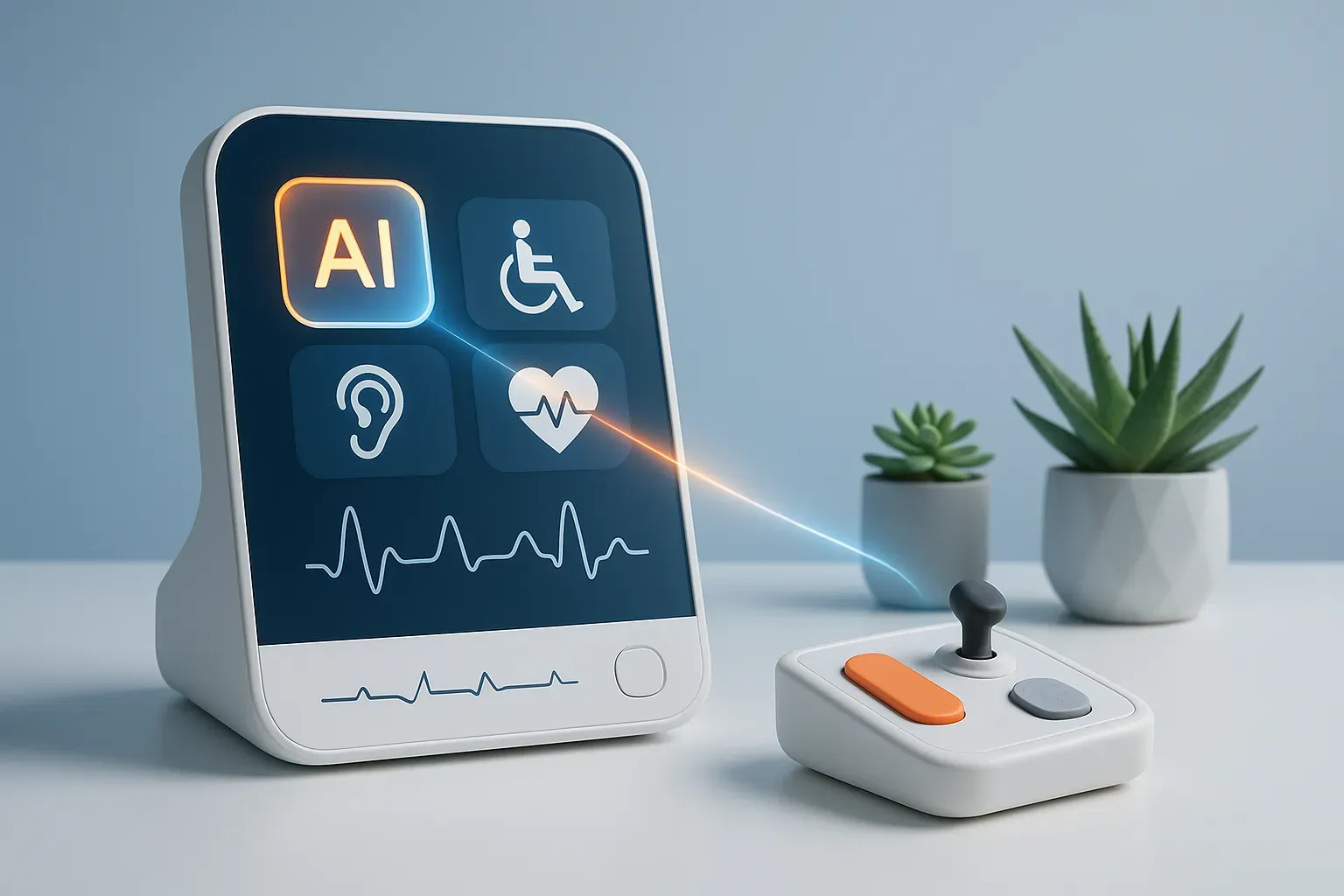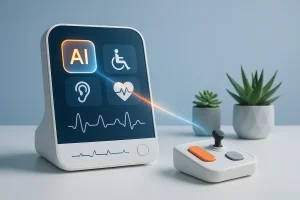Artificial Intelligence is revolutionizing patient care, particularly for those with chronic conditions. This article explores real-world applications of AI in healthcare, from early detection of vascular changes to reducing hospital readmissions. Drawing on insights from leading medical professionals, we examine how AI is transforming diagnosis, treatment, and long-term care management.
- AI Detects Subtle Vascular Changes Early
- AI Flags Medication Interactions Quickly
- AI Tracking Reveals True Heart Rate Patterns
- AI Agents Reduce Readmissions and Improve Care
AI Detects Subtle Vascular Changes Early
A few months ago, I saw a patient in his mid-60s who had been living with diabetes and peripheral artery disease (PAD) for several years. He came in for a routine follow-up — no complaints, no noticeable changes. On the surface, it looked like a stable case.
However, we had recently integrated an AI-enhanced vascular imaging system that analyzes subtle trends across serial ultrasound scans. After the scan, the system flagged a slight but consistent reduction in perfusion in his lower limb compared to prior visits. It was something that might not have stood out to the naked eye, especially given the lack of symptoms.
That prompted me to dig deeper. We repeated imaging with contrast and found an early-stage progression of arterial narrowing that hadn’t yet manifested clinically. Because we caught it early, we adjusted his medications, initiated an exercise-based therapy plan, and avoided a potential hospitalization or more invasive procedure down the line.
What stood out to me in that case was how AI became a quiet but valuable partner in care – not replacing clinical experience, but enhancing it. It picked up on subtle changes over time, helping us intervene proactively instead of reactively. In chronic vascular conditions, that kind of early detection can change the trajectory of a patient’s life.
 Uthan Vivek
Uthan Vivek
Medical Director, North Atlanta Vascular Clinic
AI Flags Medication Interactions Quickly
I had a patient with diabetes and heart failure who came in with a long list of medications: metformin, lisinopril, spironolactone, a statin, and had added over-the-counter (OTC) ibuprofen for knee pain. I ran the full list through an AI interaction checker built into the chart, and it flagged a risk: ACE inhibitor + spironolactone + NSAID can increase potassium levels and strain the kidneys.
With that information, we stopped the ibuprofen, switched to acetaminophen plus a topical NSAID, scheduled a potassium/creatinine check for one week, and added a simple hydration and pain plan. Labs stayed normal and the pain improved.
Moral of the story? AI doesn’t replace judgment; it gives you a fast, reliable second set of eyes on complex medication lists (including OTCs), so you catch problems early and spend more time explaining the plan instead of hunting for interactions.
 Julio Baute
Julio Baute
Medical Doctor, Invigor Medical
AI Tracking Reveals True Heart Rate Patterns
AI has helped me manage a hypertensive patient more effectively with its ability to track data and keep records ahead of clinic visits. I was managing a hypertensive patient whose BP was erratic, and during most clinic visits, she came with complaints of poor sleep.
I asked her to keep records using an AI tool to track vitals like blood pressure, pulse rate, and how many times she experienced palpitations in a week.
Usually, when the pulse is high (more than 80 BPM), we add a beta-blocker like bisoprolol for better control and to prevent cardiovascular events. In two of the last clinic visits when I saw her, the pulse rate wasn’t up to 80 BPM; it was about 77 and 75.
After keeping records with the AI and logging data every day, I found her average resting heart rate to be 85 BPM. We commenced her on bisoprolol and had better control with fewer sleep complaints.
 Austin Anadu
Austin Anadu
Medical Doctor, AlynMD
AI Agents Reduce Readmissions and Improve Care
One of the most impactful experiences where our AI Agents transformed chronic care management involved supporting a large clinical team with patients at high risk of 30-day readmission due to multiple chronic conditions, including heart disease and diabetes.
By leveraging our AI-powered outreach solution, the clinical team deployed automated, interactive text message check-ins with patients right after their hospital discharge. The AI Agent continuously monitored patient responses — covering medication adherence, symptoms, appointment compliance, and social needs — and flagged any concerning trends directly to clinicians for timely intervention. The system also guided patients through behavioral health screeners and managed follow-ups, integrating insights directly into the EHR for seamless team access.
The results were striking:
- Readmissions dropped dramatically, saving over $1.3 million in one year for just one health system.
- Patients received earlier, more meaningful support, including identification of critical social issues (such as homelessness risk) that clinicians could then immediately act upon.
- The health survey completion process, typically taking days of phone calls, was reduced from 172 hours to just 2 hours, vastly improving efficiency and staff capacity.
- Automated tracking ensured patients kept up with medications and follow-up visits, reducing no-shows and enhancing outcomes for those with complex, chronic conditions.
AI Agents don’t just automate reminders — they fundamentally change chronic care by combining continuous monitoring, rapid escalation of concerns, and integrated team alerts, empowering both patients and clinicians. The technology freed staff to focus on the most urgent cases and human conversations, making the support truly proactive, personalized, and impactful. This blend of automation and human-in-the-loop design is what makes chronic condition management sustainable and patient-centered for busy clinical teams.
 Howard Rosen
Howard Rosen
CEO, Nova Insights













